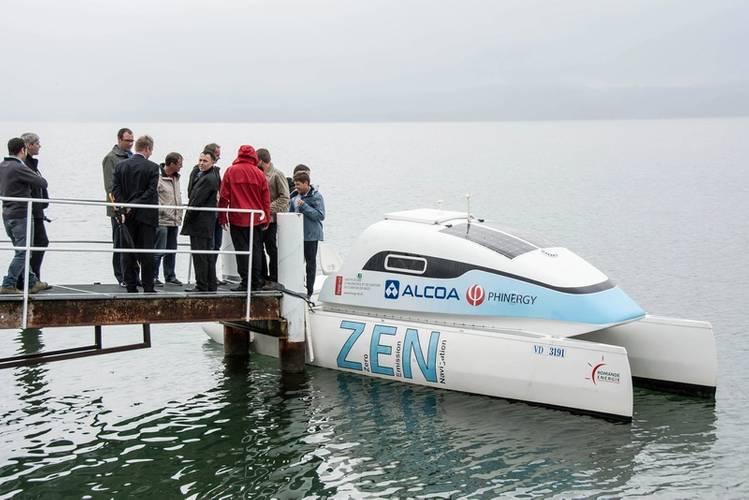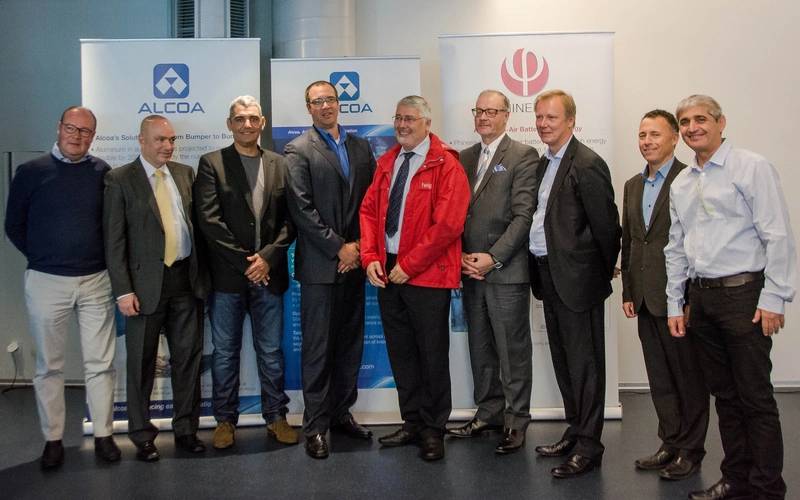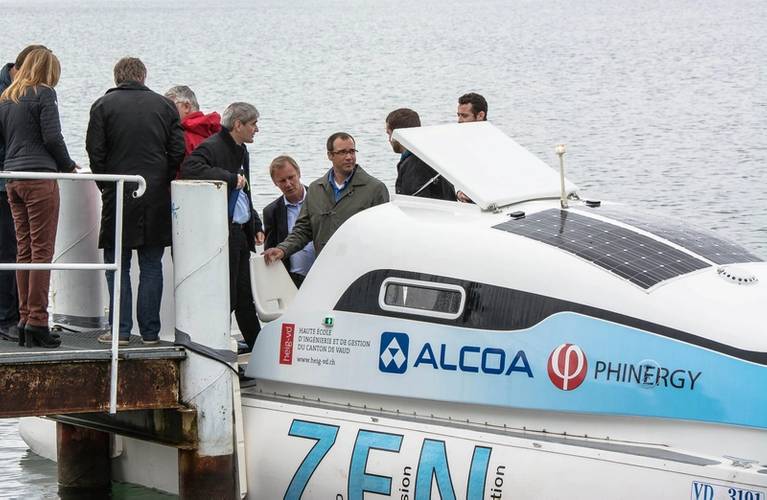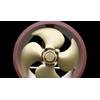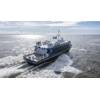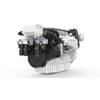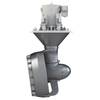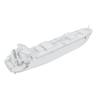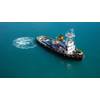Electric Boat Powered by Aluminum-air Battery
Alcoa, Phinergy and Heig-VD University demonstrate electric boat with aluminum-air battery range extender at Lake Neuchâtel, Switzerland
Alcoa, clean technology company Phinergy and HEIG-VD University, today debuted a zero-emissions electric demo boat powered by an aluminum-air battery at Lake Neuchâtel in Switzerland. Alcoa and Phinergy announced earlier this year that the companies are collaborating on new materials, processes and components to commercialize the aluminum-air battery for various applications, including electric cars, electric boats and stationary energy.
The aluminum-air battery used in the electric boat demonstrator contains 15kg aluminum which provides about 25 hours of additional navigation time, for a given navigation profile. Without the aluminum-air range extender, using the same navigation profile, the range of the vessel would be only five hours.
Martin Briere, President of Alcoa Global Primary Products (GPP) Canada, Europe and Africa, together with Aviv Tzidon, founder and CEO of Phinergy and Prof. Jean-Francois Affolter, Researcher at HEIG-VD University, unveiled the aluminum-air battery electric boat at Lake Neuchâtel, Switzerland on August 26 at 10:30 a.m. CET.
“The use of aluminum as a clean energy source has the potential to help move the global marine navigation market towards electric propulsion," said Martin Briere, President of Alcoa GPP Canada, Europe and Africa. “Alcoa and Phinergy are already collaborating on aluminum-air technologies for electric cars, with the launch of an aluminum-air battery equipped car in Canada in June, and look forward to extending this collaboration to other growing markets. When it comes to the harsh marine environment, Alcoa has developed products in special alloys to provide the strength, workability and corrosion resistance that marine applications require. Bringing long range electrical propulsion to the nautical environment opens up a wide range of additional possibilities for marine operators."
“Electric boats are currently unable to provide sufficient navigation range,” said Aviv Tzidon, CEO of Phinergy. “With Phinergy’s technology, and Alcoa’s industrial and commercial leadership, we see an exciting opportunity to penetrate this market by proving the required long range.”
“The HEIG-VD shares its experience to make the enabling of long range zero-emission electric boats possible. Aluminum-air technology will help make electric navigation more attractive and contribute to the prevention of water pollution,” said Jean-Francois Affolter, Professor at HEIG-VD University.
The aluminum-air battery uses air and water to unlock the energy stored in aluminum. Each kilogram of aluminum provides approximately 4kWh electricity. The technology allows an energy density that surpasses conventional battery technologies and creates vehicles with travel distances, purchase prices and life-cycle costs that are comparable to fossil-fuel powered vehicles.
In addition to use in electric transportation, the aluminum-air battery technology can be used for stationary energy applications such as commercial emergency generators for hospitals and data centers, general purpose generators, and defense applications such as mobile housing and unmanned vehicles. It can also be used for first responders due to its infinite shelf life and high energy density. Phinergy and Alcoa are also working on the aluminum-air technology for these applications.





